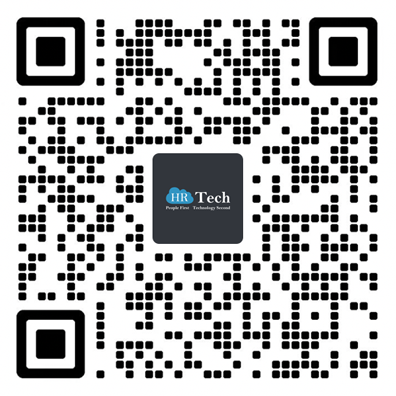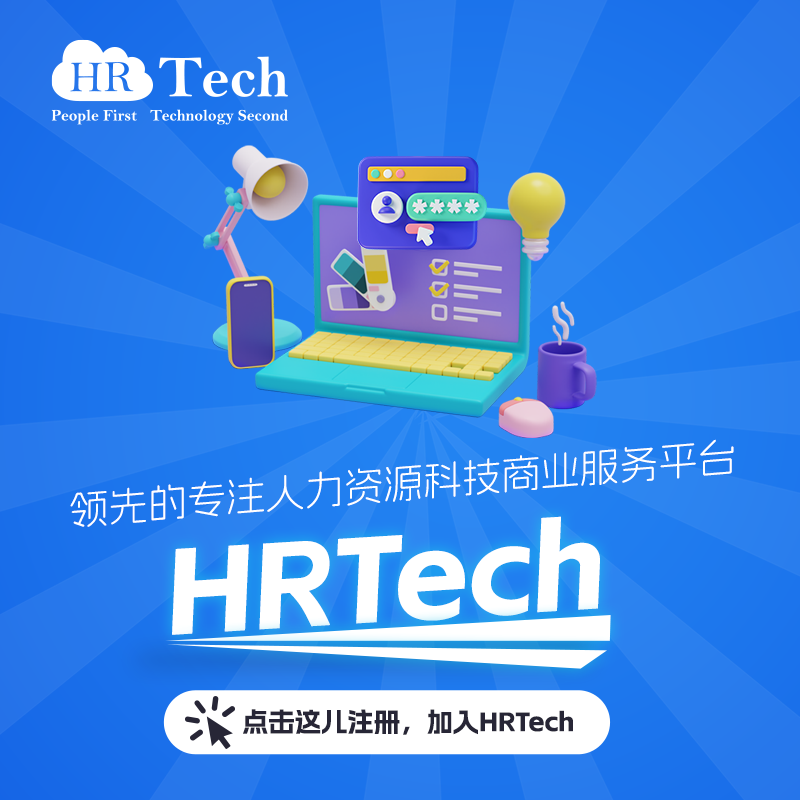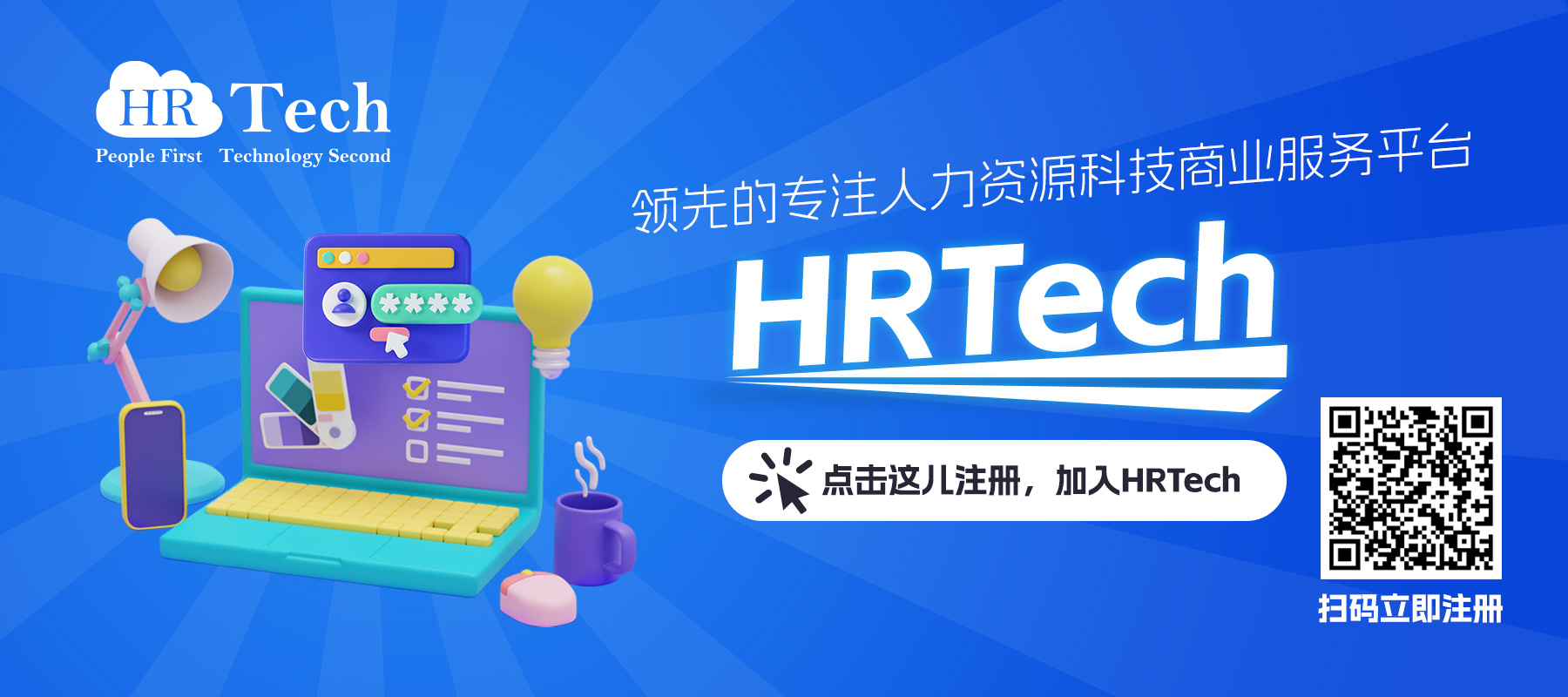硅谷
7个原因告诉你:为何公司仍旧在与人力资源分析作斗争
此文为HRTechChina编辑部编译, 欢迎个人转发分享。公众号,单位如需转载,请备注作者以及出处。如对HRTech方面有自己的见解、作品以及资讯,也欢迎大家投稿至tougao@hrtechchina.com
大多数人力资源领导人已经意识到了运用人力资源科技和分析技术的优势,但是有多少人能完全利用上这门技术?
来自马来西亚、新加坡以及香港的107个专业HR进行了一次投票。一份新的报告由CIPD进行研究,其最重要的原因便是限制机构已经意识到了人力资源分析的有利之处。
这份报告显示,组织认为人力资源分析非常重要且可能成为潜在的变革。他们承认这种分析能力存在于早期阶段,并且会被一系列因素所阻碍。
很多机构已经开始了他们人力资源分析的旅程,但现在仍处于初期阶段。那些有意把人力资源分析作为战略目标的机构,将会朝着可持续性、有竞争性、获得优势等方向迈进。
以下是7条报告中所展示的原因:
缺乏商业投资和人力资源分析的专业性。57%的人力资源专家说人力资源分析技巧缺少实用性。
在全球形势中,人力资源分析的应用在部门或公司内是分散的。
将近一半(48.5%)的机构缺乏先进的人力资源技术,而这已满足了业务需要,并且只有23.4%的机构使用了综合性的人力资源分析软件。
这些约束力,例如 投资、领导力、理解力和人力资源整体成熟性将阻碍战略发展层面,而在操作层面技术和分析能力将抑制它。
标准化是一个重大的挑战——人力资源专家并不确定是应该为他们的公司开发特殊措施还是发展标准措施。
大多数的数据可以用于反思和洞察,而不是使用开发指标来预测数据。
组织仍然把那些以文化方面做为着眼点的公司作为他们数据的来源,很少关于其他战略方面的活动被评估和报道,例如生产力和绩效。
“进化的脚步也许会非常的慢,但是这次研究表明,把人力资源分析加入到商业中或不同地域中将是一件非常有潜力的事情。”
“小型项目能通过平均计分卡,清晰的展示出商业洞察力,这也是一种让人力资源分析能够获得广泛购买的一种方式。并可以获得更多关于技术以及技能的投资,来支持这一重要的活动。”他补充道。
这个报告同时也包含了四个重要的点,来帮助组织机构通过人力资源分析获得更多的利益。
1、人力资源部门应该多吸引一些有分析才能的人加入这个行业,并完善人力资源专家对于分析的基础理解。
2、人力资源专家不光要从事组织内部的业务,也要与业内同行建立良好的时间方法。
3、人力资源领导应该鼓励发展更好的度量标准,并分析其他业务领导,利用循证分析项目来推动关于人力资源分析的投资。
4、不能仅仅发展高级专业人士的分析技能,这些技能应该同事被运用到人力资源外的部分,从初级人员到高级都该运用学习。
7 reasons why firms are still struggling with HR analytics
Most HR leaders may have realised the advantaged of using HR technology and analytics, but how many are fully equipped to leverage on the benefits of such technology?
Polling 107 HR professionals from Malaysia, Singapore, and Hong Kong, a new report by CIPD delved into the biggest reasons which are limits organisations from realising the benefits of HR analytics.
It concluded that while organisations view HR analytics as hugely important and potentially transformative, they admit that these type of analytics are at the very early stages of capability and are being held back by a range of factors.
“Many organisations have begun their HR analytics journey but it is still in it’s very early days. Those organisations that are able to use HR analytics to be more strategic are likely to make significant steps towards sustainable, competitive advantage,” commented Edward Houghton, CIPD’s research adviser.
Here are seven such reasons which were identified in the report:
1. A lack of business investment and HR analytics expertise, with 57% of HR professionalssay there is a lack availability when it comes to analytical skills.
2. Reflecting the global situation, the application of HR analytics is fragmented, in sectors and organisations.
3. Almost half (48.5%) of organisations lack sophisticated HR technology which meets the needs of the business and only 23.4% are currently using a fully integrated HR analytics IT programme.
4. Constraints such as investment, leadership understanding and overall HR maturity are holding back development at a strategic level while at an operational level, technology and the analytic skill set are inhibiting the development of the function
5. Standardisation is a significant challenge – HR professionals are unsure whether to develop context specific measures for their organisation or standard measures for benchmarking purposes
6. The majority of data is used as a reflective insight, rather than using indicators to develop forecast data
7. Organisations continue to focus their attention of engagement and data around cultural aspects of the firm as their main sources of people data. Far less is being measured and reported with regards to other strategic activities such as productivity and performance.
“The pace of evolution may be fairly slow, but this study shows that there is real potential for HR analytics to add value across businesses and across the region,” Houghton stated.
Small projects that show clear business insights through a balanced scorecard are an essential way to get wider buy-in from the business on the value of HR analytics, and can open the door for greater investment in technology and skills to support this critical activity,” he added.
The report also included four key recommendations for organisations to reap more benefits from HR analytics.
Firstly, HR functions should attract more analytics talent into the profession and develop HR experts with a foundation of analytical understanding.
Secondly, HR professionals in the region should look to working across the business functions in their organisations as well as externally with industry peers to establish best practice methods.
Thirdly, HR leaders should champion better metrics and analytics to other senior leaders in the business and drive investment in HR analytics using evidence-based projects.
Lastly, instead of only developing analytical skills in senior professionals, these skills should be developed throughout the HR function, from junior-level professionals to senior-level professionals.
来源:humanresources
硅谷
充满创新风暴的科技公司也需要追求年龄多样化吗?
编者按:在充满创新风暴的科技领域,年轻员工往往更受青睐,而老员工却遭受歧视。针对这一现象,关注老龄化和老年歧视的社会活动家Ashton Applewhite 认为健康的企业应该追求年龄多样化,并呼吁人们关注和应对老年歧视。
以下是正文:
企业当然应该追求年龄多样性,即使在科技这样一个充满创新风暴的领域也是如此。员工都很年轻的科技公司往往适应性和创造性不足。即使他们具有适应性和创造性,但混龄团队在需要创造性思维的领域会表现得更加出色。根据《科学美国人》杂志指出:“研究结果很清楚:对于那些注重创新和新想法的团队来说,年龄多样化具有帮助作用。”
关于多样性的研究结果显示:与不同的人共处能让我们工作更加勤奋和努力,思维更加开阔。年龄多样化的团队能做出更好的决策,因为他们能利用到更多的数据和更多的观点。那么为什么当我们提出在企业中年龄应该像种族、性别、能力、性取向一样具有多样化时,很多人会感到惊讶呢?
因为人们根本还没有年龄多样化这个意识。老年歧视既不利于公司发展,也不利于个人发展,但人们似乎还没意识到这一现实。如今性别歧视、种族歧视和恐同已不再那么普遍,因为大多数人都知道,这些歧视会为妇女和少数族裔人群的生活带来困难。但很多人还没有认识到当前这种偏爱青春、速度和光鲜靓丽的文化也会对老年人的生活带来困难。
硅谷是青年文化的典型代表。其中的科技工作者都在试图 “变成”年轻人,就像有色人种有时会想变成白种人一样:因为这样就能获得或保留特权,逃避偏见。要求应聘者的年龄是非法行为,但雇主们依然经常宣称 “数字原生代”(维基百科对这一概念的定义是 1980年 后出生的人)。在硅谷,“老”=不再年轻,技术越老越潦倒。精英观念和老年歧视这种文化认为老年人是 “数字移民一代”,不能轻松面对新的技术,这明显是不真实的。
其他的老年歧视成见比比皆是:比如老年员工的生产力较低,不可靠,不投入,可教性和创新性差等等不胜枚举。但这些偏见没有一个经得起推敲。其实老员工通常在工作的各方面都要比年轻同事表现得出色。沃顿商学院教授及《管理老员工》一书的作者 Peter Cappelli 这样说道, “我认为格局应该更加多样化,但事实并非如此。老员工在工作上表现卓越,但他们在工作中却遭受歧视,这样的对比简直匪夷所思。” 由于雇主的无知和老年歧视,相关的诉讼也在呈上升趋势。
旧金山湾区对青春的极端迷恋并不亚于其对黑人、女性和残疾人的偏见。直到那些位于食物链顶端的人们,即那些聪明、有技能、不弯、待遇优厚、四肢健全的白种男人在 30 多岁开始遭受歧视的时候,老年歧视才会在职场中获得一些应有的关注。
那么我们怎样才能实现科技企业的年龄多样化呢?
首要的一点当然是录用和留住老员工。这意味着要提供灵活的工作时间,减少障碍,提供培训,并帮助他们过渡到非全日制就业阶段。这样的安排也有利于其他员工:包括有孩子的父母,不同年龄段人群的看护者,以及那些在工作与生活中努力寻求平衡的员工。此外,公司也会因此受益。没有歧视的企业不只会拥有一个更好的工作环境,它们也会运作得更好。管理者不希望在项目需要不同类型人才和知识背景的时候抓瞎,而聪明的人知道,一个年龄多样化的团队,最有可能实现这一点。
老年人也使用和需要技术,这不仅仅包括当前火热的面向年轻人的技术,还有各种方便人们生活的软件和设备。而如果老年员工能够帮助设计它们,那么这些产品将会表现得更好,从而拥有更好的销量。这也关系到我们自己切身的利益:每个人都会变老,这意味着你最终也会用到其中的部分产品。帮助老年人继续工作也是基于我们的自身利益考虑,因为它有利于国民经济和联邦预算。当老年人找不到工作时,许多人会依靠财政补贴,从而进一步造成了老年人纯粹是社会负担的这一偏见。
实现年龄多样化真正要采取的一点是什么?就像曾经唤醒人们去关注种族歧视和性别歧视这样深蒂固的体系一样,我们也需要发起关注老年歧视的群众运动。就目前形势来看,我们在这方面依然任重道远。
应对老年歧视首先需要反省我们自己的偏见。一方面老年人,不要把年轻人当自己的小孙子一样管理,另一方面年轻人也不应对与自己同居一室的妈妈辈同事嗤之以鼻。发现你们身上的共同点。应对老年歧视也意味着我们在看到老年人的时候,不要把他们当作怪人和 “其他人”,而是把他们当作我们自己,当作我们未来的自己,并去结交不同年龄段的朋友。此外,当你遇到老年歧视的时候,要站出来发声。你可以观察办公室里的同事是不是都是清一色的年龄?如果是,那么企业这样安排是否有正当的理由?(糟糕的理由举例:因为它是一个独角兽初创企业,或者因为你们正在开发一款时尚移动应用)
关注和消除老年歧视能让这个世界变得更加美好。消除老年歧视不仅仅会让技术领域受益,也不仅仅会让老员工受益。我们每个人都会变老,是时候让我们一起来面对这一问题了!
本文编译自:huffingtonpost.com,如若转载,请注明出处:http://36kr.com/p/5039386.html
硅谷
hi ,姑娘们:像用Uber一样一键叫来一个帅哥,这个服务真的有
去年,硅谷又出现了一家创业公司,叫ManServants,直译应该叫男佣?
对于每天都在涌现各种创业公司的硅谷,这家公司从创立之初就获得了更多的关注,甚至包括一些主流媒体的关注。
《时代》的评语是:
ManServants:让你几乎所有的美好幻想成真的创业公司。
《卫报》:
家庭主妇之神:ManServants是怎样改变你的生活的。
这家公司是做什么的?看了他们的宣传视频你就明白了:
《赫芬顿邮报》的评语就很直接:
ManServants就像是脱衣舞男,但是要好得多。
在现代西方文化里,结婚前的男女会找各自的同性密友办一场单身派对,在这样的场合,女性也会想做一点出格的事:比如找一个脱衣舞男跳舞给大家看。不过,脱衣舞男往往举止怪异、下流,不是每个女性都能接受的。
“韩剧就是女人的A片。”一位睿智的女性曾经这样告诉我。和神经大条、缺乏想象力的男人比起来,姑娘们在情感上更看重浪漫、情调、绅士风度。而ManServants就是为了满足女性的幻想而生的。
长相帅气,一身得体的西装,彬彬有礼,举止优雅,关键是,身边这位绅士会体贴地帮你打伞;健身后帮你拿饮料;如果你觉得孤单,他会在旁边陪你聊天。而且,你也可以有一点“过分”的要求,比如看他做俯卧撑的时候,坐在他的背上。
ManServants自己在广告语里说,“如果你恨你的朋友或者自己,给她找个脱衣舞男;但是如果你爱她,帮他找ManServants吧。”
预订ManServants很简单,有媒体直接把它叫做“呼叫帅哥的Uber”,只需要在网站上填写你需要他们出席的场合,需要的人数、时间、地点,支付之后就会有帅哥准时登门。他们还在开发app,希望呼叫能变得更加简单。
ManServants的创始人是两位女性,32岁的Josephine Wai Lin和26岁的Dalal Khajah,她们原本都是数字广告代理机构的编辑,创业的缘由是她们去参加朋友的单身派对时,总是会对脱衣舞男的出现觉得非常尴尬。在一次工作间隙的抽烟时间,她俩一拍即合,“不如我们来做一个让女性不尴尬的服务。”
去年,ManServants那个宣传视频发出后吸引了大量的关注,不过当时有Re/code的记者去体验这个服务,然后发现自己的订单一直显示正在排队。所以,这个服务也被认为非常不靠谱,或者根本就是个恶作剧。
不过现在来看,ManServants确实是一个认真的服务,而且除了旧金山,她们的服务还延伸到了洛杉矶和纽约。
Re/code的记者这次直接去采访了在ManServants工作的帅哥。Alex Milone算是个早期员工,看完宣传视频,他就决定加入ManServants。
ManServants严厉禁止自己平台上的帅哥和顾客发生性关系,也不能透露自己的真实姓名。实际上,顾客可以提前留言要求上门的帅哥叫什么名字。不过让所有人都明白并不容易。Milone说自己出席的场合,有1/3知道这个服务,还有1/3会把他当成保镖,剩下的人就不好说了。他曾去参加一个70岁老人的生日派对,老人的闺密们对他说的话简直让他招架不住,“你应该去得到这个女孩。”
老人的派对上,Milone赚到了400美元,当然他没有做老人朋友要求的事情。“我们两个人一个给她按脚,另一个用勺子喂她吃甜点”,整个过程持续了4个半小时。
Jamie Michaels是另一位ManServants平台上的帅哥,他每周六基本都出现在各种单身派对上,他也分享了自己遇到过的奇葩经历。有一次,一位准新娘收到了朋友送的礼物——一套内衣,她突然脑洞大开,直接把文胸和丁字裤套在了Michaels身上。
不过,他们依然会全心全意为顾客服务。成为ManServants的雇员之前,他们都要接受测试和培训:顾客是不是喝太多酒了?在她们询问之间在杯子里加满喝的。她们觉得无聊,给他们读莎士比亚的十四行诗。帅哥们甚至要头脑风暴怎样更好地取悦顾客。
对于ManServants这样的服务,《GQ》曾经奉劝男性读者,
现在,女人正在超越我们,她们受教育程度更高,工作做得比我们更好,我们很快就会变成花瓶和生孩子的。既然如此,还等什么呢?你不愿意加入ManServants吗?
如果有创业者在国内复制了这个服务,你愿意加入吗?
对了,这一定是女权主义反对声音最少的创业项目。
来自pingwest http://www.pingwest.com/manservants-order-a-hansome-man-like-uber/
硅谷
Google说Gmail不仅可以读懂邮件,还要帮你自动回复
通过深度学习技术,Google 正试图让 Gmail 帮助用户自动回复邮件,通过分析收到邮件的内容,提供一些简短的答复,至少让用户可以在移动端轻松处理邮件。
Google 负责此项业务的产品经理 Alex Gawley 表示,Gmail 提供的回复还会根据上下文,提供三种在语气和内容上不同的回复,供用户选择。
Gmail 的此项功能,是基于对海量邮件数据的分析,通过神经网络分析技术来模仿人工的回复。但是该技术也有局限,百度首席科学家吴恩达表示,基于有限样本的数据,现有技术只能粗略理解相关问题。Gawley 也表示 Google 提供的回复不总是正确的,这也是 Google 提供三个答案给用户选择的原因。
智能回复的产生,用了两次神经网络的技术,一次是解析原邮件的时候,通过其提取和理解语义,第二次是根据提炼的语义拟定答复。其回复邮件是逐字逐句的,和人工回复的过程差不多。
为了保持语义的准确和实用,Google 给出的回答通常在 3-6 个单词之间。从产生的答案来看,这个策略很有效。在某些时候,系统甚至能识别笑话,并给出 “Ha. Very funny” 的回复。而如果当对方问:“你是否确定了假期的计划,如果确定了是否可以发给我?” 的时候,系统给出的三个答案是:“还没有”、“我刚发给你了”、以及 “我正在做”。
自动回复系统也会出现三个答案类似的情况。例如:“明天怎么样?”,“想要明天聚聚么?” 以及 “我建议明天?”。除此之外,该系统还有一些其他的问题,例如 “我爱你” 出现的次数明显太多了。Google 也在针对这些问题持续地对系统的算法进行调试。
Google 会在周三向公众开放该功能,支持英文版 iOS 和 Android 的 Inbox 应用。随着用户的使用,将日趋完善。但我觉得大家也不用期待过高,离机器可以完全代替我们写邮件的那一天还很遥远。
来源:36氪 ,作者:张大大
出处:http://36kr.com/p/5039270.html
硅谷
校招领域有多大空间?全球精英都跑到沙漠里来想答案了
第七届世界教育创新论坛(World Innovation Summit for Education,简称 WISE)今天在卡塔尔多哈开幕。来自 150 个国家的 2000 多位各界专家一并出席。
卡塔尔王妃、基金会主席 Moza bint Nasser 殿下及美国第一夫人 Michelle Obama 为开幕式致辞并颁奖。
在随后的一场 CEO 圆桌会议上,多国的企业首席官和顶尖高校领导举行了辩论,议题为 “填补人才技能的沟堑:雇主们如何成为高等教育的联合投资人”。以下是圆桌上的嘉宾观点,希望能启发各位教育和企业服务行业的创业者们发现市场空缺:
咨询公司盖洛普对 159 个国家进行调查,教育行业人士中仅有 39% 认为高校教育为大学生走上工作岗位做好了准备。尤其讽刺的是,高校的行政人员中 98% 都相信学校教育很好地对接了职场;而企业的首席官里只有 11% 同意。
中国的麦可思数据公司的总裁王伯庆认为,国内高校的毕业生对行业缺乏了解。来自埃及 Delta Shield for Investment 的总裁 Neveen Tahri 则说,大学生具备优秀的能力,所缺乏的是在求职过程中表现自己的方法,把求职变成了在市场上卖身。
60 年代雇主招聘秘书,写出的要求是 “秘书”;今天雇主招聘秘书,写出的是 “总裁秘书”,职能要求可以长达 6 页。很多雇主公司不能厘清自己的需求。同一家公司里,CEO 看重人才的长期性素养,招聘官则看重人才能不能第二天就上岗做事。
大学教育不应该是阶段性的,而是长期伴随职业发展的。比如斯坦福的 Loop 计划,学生可以不断入校、离校,参加工作再回到学校充电。又比如设计持续性的实习项目,大一实习在公司各部门间轮岗(而不是泡咖啡和做复印),大二进入专业性工作,大三成为工作中的老手。每年的实习成果都需要报告给学校和企业,来不断改进。
即使同在一座小城市,也会出现大学、高中的校长和本地的大企业家相互完全不认识的情况,社交活动与合作的空缺还很大。
也有相当一批雇主也不愿意提早培训大学生。国际企业 SGS 曾为 12 个他们所青睐的大学生提供持续多年的企业奖学金,到他们毕业时,没有一个去该企业就职。得到良好培训和辅助的大学生更容易招致别家企业来挖墙脚,哄抬学生的毕业起薪。
比起硬技能的教育,软技能教育(沟通、团队协作、领导管理)更为重要。因为 92% 的公司都撑不过 20 年。大学为柯达公司设计的职业培训内容可能一夜间变得无用,因为新的毕业生应该去 Instagram 工作了。
软技能目前还没有很好的机制去发现。一个大学生做了三件看起来和专业工作不相干的事(例如参与 NGO),但也许这三件事会让她在以后的工作里有更高的语言敏感度、或更懂社交媒体、或更善于结交好人缘,这样的软技能是很难从网站电子化筛选简历的机制里被发现的。
来源:36氪 ,作者:杨眉
出处:http://36kr.com/p/5039317.html
硅谷
#硅谷行回顾# 探访wework-不仅仅只是二房东
10月硅谷之行的尾声,CEO参访团的团员们拜访了位于旧金山市区的wework。前期的HRtech创新论坛的圆满召开,硅谷科技公司HR专业人士的分享,人力资源科技公司的探访之旅,中外创业公司的精彩演讲,这一切无一不振奋着每一个人的神经。最令小编振奋的是,硅谷一行已经有国内的企业家准备在硅谷设立据点了!那事不宜迟,马上带团员参观旧金山不一样的二房东-wework。
wework为创业者提供办公空间和会员服务,而会员们共享办公设备和会员活动。同时wework打造了线上和线下的会员社交网络,并通过中介人的方式为会员们引进摩根大通银行,Trinet甚至和Uber等第三方的合作。当会员们有相应的需求时他们能以更低的折扣来得到相应的服务。因此,wework不仅仅将自己定位于办公租赁的房东的角色,而是类似Uber和Airbnb等通过分享经济的模式,打造人与人之间的联系或社群,而不是创业者独自坐在格子间面对着电脑。wework创立于2010年2月,1个月后就实现盈利,至2015年已融资4亿美元,目前估值达100亿美元!
wework的工作人员Alyse带领团员们前往7楼参观他们的办公空间。Alyse介绍,wework的服务对象有自由职业者,初创公司,非盈利机构,高科技人员,也有像百事可乐这样的大公司等等。办公室的大小根据需求不同各异,也欢迎携带宠物办公。但是不同于传统租赁公司或者是房地产公司,他们创建了社区的概念,他们常常组织活动增强会员之间的联系。你可以在社群里找到你的客户,服务的供应商比如律师,会计等,或者和其他创业者交流创业的经验和难处,也可以参加他们定期举办的派对,酒会,研讨会等等。有团员提问其与孵化器之间的区别,Alyse答道wework为客户提供租赁办公服务,创建创业者共生的社群,但是他们不参与投资或者指导。如果创业过程中产生的其他需求,比如薪酬福利或者是员工健康之类的管理,他们会与第三方比如Trinet合作,洽谈一个折扣价格提供给会员,但是目前他们还没有针对这个服务收取费用。(Trinet:为中小企业提供人力资源外包服务的企业,提供包括薪酬,福利等方面的产品,2014年上市。)
[caption id="attachment_10001" align="alignnone" width="800"] wework[/caption]
[caption id="attachment_10002" align="alignnone" width="800"] wework[/caption]
大小各异的玻璃格子间,棕黑色的实木地板,角落里摆放的自行车,公共区域摆放的软沙发,无限供应的咖啡和啤酒,举目触及的略显粗糙的水泥天花板。简单而不失细节,粗糙而又带点后现代工业化的风格。随处可见的是玻璃间的勤奋的身影,和公共区间交谈着的创业者。在乘坐的电梯中,也张贴着各种活动的告示:如何在5分钟内有效的游说对方;瑜伽课程;冥想课程;bond street举办的早午餐会等等。wework的每个工作区域设置的社群经理会定期的推出各种活动,来增加会员之间的联系。work togerther not work alone,这也正是wework创立之初的目标。而它正在不断努力为会员创造可以专注其工作领域和激发工作热情的良好环境。
[caption id="attachment_10004" align="alignnone" width="800"] wework[/caption]
[caption id="attachment_10006" align="alignnone" width="533"] wework[/caption]
[caption id="attachment_10007" align="alignnone" width="800"] wework[/caption]
结束了wework的参观,10月硅谷之行也将近尾声。俗套是不能免的,所以合影是必须要有的,虽然是部分团员,不知道下次硅谷之行能否在wework里见到我们的团员呢?
走出wework 抬头看天空,刚好是蓝天使飞行队的表演,为我们硅谷参访之旅画上一个圆满的符号。
关于海外考察服务,更多信息可以访问:
http://oversea.hrsalon.org/
或者直接邮件联系: annie@hrtechchina.com
硅谷
GrowingIO:将数据分析流程整合成一个产品,协助用户优化企业运营效率
提到 Growth Hacking,对互联网行业稍有了解的人或许都知道这是当下一个挺受欢迎的概念。一些知名的公司,比如 Airbnb 就曾经用这种理念获得了井喷式的增长。如果你之前还没听说过 Airbnb 与 Growth Hacking 之间的故事的话,我建议你先读一下《Airbnb 的“暗黑成长史”》,因为看过之后,你自然会对我今天要介绍的这个工具更感兴趣。
对于已经看过上面那篇文章的读者来说,你或许也想能找到让自己正在做的业务快速增长的方式,但却苦于没有合适的人才和工具能帮你做到这一点。如果这是你正在面临的困境,那么不防试一下 GrowingIO。这款由前 LinkedIn 美国商业分析部高级总监、世界前十位前沿数据科学家之一张溪梦带队打造的工具没准可以帮上你。
衡量用户和产品关系的热度和健康度指标
GrowingIO 是什么?
简单来说,GrowingIO 是一家大数据分析公司,它提供的工具可以通过收集、分析产品的数据来为其提供企业业务增长解决方案。
详细来说的话,对于 GrowingIO 正在做的事情,张溪梦自然会有更生动的解读,他告诉 PingWest 品玩:
GrowingIO 把过去整个数据分析的流程,从采集、数据传输、输出存储、数据转化、可视化、高级分析模式这些所有的步骤通过一个产品展现给大家。企业不需要前端的工程师去布置代码,不需要大数据运维的人员去传输数据,不要数据仓库、集群,不需要闭源工具做数据提炼,也不需要做推荐算法工程师来做各种手动的统计学或者分析模型,这些功能都被 GrowingIO 做成一个产品,直接交付给企业业务端的人使用。
GrowingIO 有哪些特点?
看完 GrowingIO 对数据做了这么多复杂的处理之后,你大概会觉得这应该是一个需要不少练习才能掌握的工具,可在张溪梦看来,在 GrowingIO 的所有特点中,简单、速度快、高度智能、规模化是他们同时看重的。
简单:GrowingIO 经过一次部署之后,可以直接在 Web 或者 app 上操作获取数据,用户只要圈点网页中的某个元素就能实时获得用户与这个元素交互的情况。非常简单易用,任何一个人经过几分钟的培训就能用。
速度快:由于 GrowingIO 把整个数据分析流全部打通了,所以用户从需求提出,到最后结果的展示不再需要很多功能上的、工程上的或者业务上的流程,以前需要几个星期分析的工作,现在在几分钟之内就能实现。
高度智能:以前数据分析人员需要从报表中看出趋势,用各种不同纬度的报表找原因,但现在 GrowingIO 则具备一定的能预测力,能相对动态的帮助客户找到业务发展不利的原因,计算用户潜在流失的可能性。这其中内置了机器学习以及预算模型的能力。
规模化:张溪梦觉得自己在 LinkedIn、eBay 这些公司做的最重要的工作就是把数据分析的能力提供给各个不同部门的员工使用,所以 GrowingIO 也具备服务各个不同部门员工需求的数据分析能力。
GrowingIO 是如何协助用户优化企业运营效率的?
大头图好,还是小头图好?右下角三个分享按钮有人点吗?
在张溪梦看来,一个企业需要很有效率的进行运营,而运营的核心就是数据化。在我的要求下,张溪梦针对 PingWest 品玩的网站进行了一番分析,然后提出了若干可以优化的点,比如来说:
1:PingWest 网站文章内的图片都是可以点击并会跳转到新页面的,张溪梦看完之后就觉得这个点击没有直接的商业意义,而且如果在移动端的话,可能导致用户的跳出率很高。
2:用户打开一篇 PingWest 的文章后会看到巨大的头图,以及右下角的三个社交媒体分享按钮,那么对读者来说,大的头图好还是小的头图好?右下角的三个社交媒体分享按钮有人点击吗?
3:PingWest 文章页面支持无限翻滚,但右边广告位置却是始终不变的,那么如果用户翻滚五个页面看到的广告是相同的,好还是不同的好呢?
4:如果某类广告用户点击之后就没有再回到网站来,那么以后是否还应该展示这样的广告呢?
以上只是张溪梦提出的一连串疑问中比较容易说清楚的几个,不难发现,如果想做出决策、优化网站运营效率的话,自然需要数据来做支撑,而这些数据只需要在 PingWest 网站布一段代码就能轻松获取。
在 GrowingIO 上,用户可以通过热度和健康度这两个指数来衡量用户和产品之间的关系。对于企业来说,一个用户每天花很多时间在自己的产品上,但从来不贡献收益,这自然是不健康的;但如有有一个用户经常贡献收益,但停留时长却很短,这显然也是不可持续的。如果你想不断优化自己的产品,让它变得可持续的话,GrowingIO 的确值得一试。
来源:pingwest 作者:cyzhou
硅谷
Slack 如何通过用户反馈来打造令人尖叫的产品?
编者按:本文来自First Round Review,他们的文章既讲故事,还会向创业者提供具有很强操作性的建议,以助力打造优秀的公司。如何通过获取和利用有价值的用户反馈数据信息来改善产品?大部分创业者都会为此头疼。本文中,堪称史上发展最快的 SaaS 公司 Slack 的首位产品经理分享了 Slack 获取和利用有价值的用户反馈信息、从而打造一款令用户尖叫的产品的经验。
Kenneth Berger 2014年6月 加入 Slack,那时 Slack 正处于爆发式增长期,媒体报道也是铺天盖地。作为 Slack 的第一位产品经理,加入 Slack 后的 1年 里,他全面负责 Slack 的产品功能。在这期间,Slack日活用户从 10 万猛增至 100 万 +,用户好评如潮。
当时 Slack 的用户增长数据一直很抢眼,用户反馈也很好,不管从什么角度看,Berger 的工作似乎并没有太大难度。然而随着用户反馈数据的激增,Berger 需要快速从海量反馈数据中找到那些真正有价值的反馈数据并加以利用。他知道,满足于现有的业绩,光靠吃老本肯定是不行的。要实现 Slack 更快地发展,Berger 必须要走出去,搜集哪些他没有的有价值的反馈信息。
近日,Berger 接受了 First Round Review 的专访,他分享了 Slack 是如何对用户反馈信息进行优先级划分的以及从中学到的东西。他分享了自己为何在 “指标” 和 “目标” 这两者中会更看重 “目标”,为何他认为公司创始人需要像科学家一样去思考和工作。最重要的是,他分享了如何从海量定性数据和定量数据中进行有效筛选并找到那些最有价值的数据的秘诀,这些数据包括网站统计数据、社交媒体上的反馈数据、留存率和客户支持数据等。
要追求目标,不要单纯地追求数据
对于大多创业公司来说,问题不是缺少用户反馈数据,而是他们不知道如何利用这些反馈信息。大多数情况下,人们对自己面前的已有信息或是容易获取的信息更为敏感,也就是说,人们更加看重这类信息渠道,而对其他的信息渠道漠不关心,这就会导致在很多时候无法获得真正有价值的反馈信息。根据 Berger 的经验,要想避免这种情况的发生,最好的办法就是将注意力和精力集中关注于公司最重要的目标上。“很多人只关注指标数据,并认为这是验证成功与否的标志。数据指标当然非常重要,但对我而言,它只是目标的一部分,让目标得以量化。”
Berger 对创业公司非常了解,他最开始联合创办了自己的公司 YesGraph,后来加入 Slack,他深知创业公司的发展环境和用户心理是瞬息万变的。如果你不一直不断重新评估什么才是公司最重要的目标的话,你可能就无法知道什么数据指标对目前的公司来说才是最紧要、最值得关注的。
如果你同时还在忙于扩充团队,事情就会变得更加复杂,因为不仅公司的目标在变化,你的责任也在变化。公司可能会成立新的部门,很多事都会朝着不同的方向发展,公司的重点也会随着时间的推移而发生变化。
在确定公司的目标时,要坚持下面这个简单的原则:每个人都需要知道他们为什么做他们正在做的事情。在确定公司的整体目标后,确保每个部门或部门负责人都知道这一目标,并在这一目标的基础上确定各自部门相应的数据指标。
只有当各个部门的人员都参与到数据指标的制定中时,数据指标才能发挥最大的作用。
“如果人们身上背负的任务指标是由其他人定的,这时数据指标很难发挥它应有的作用。只有当各个团队和团队里的每个人都能参与到数据指标的制定时,这是大家的工作积极性和才能才能被充分调动起来。”
对于绝大部分公司而言,有两个指标都是至关重要的:用户留存指标和营收指标。但这两个指标究竟定为多少才最为合适?除了要关注这两项指标外,我们还需要关注哪些指标?这些问题的答案因公司而异。公司的商业模式,公司的产品是企业级产品还是直接面向消费者的产品,以及你所在的团队,这些都会影响上述问题的答案。我个人是非常反对 ‘指标至上’ 的观点的。例如,如果你只关心收入增长指标的话,你怎么能知道客服团队在里面发挥了多大作用?客服团队通常是非常重要的,如果不给他们定一个和他们的工作直接相关的指标的话,就无法充分调动他们的积极性,也就无法将他们的价值发挥到最大化。
要定期审视和评估你的目标,不管是一个月一次还是一个季度一次,只要符合公司的实际情况就行。你是否足够关注新用户的获取?是否在为老用户创造价值?公司目前的重点是什么?只有时刻想着这些问题,你才能知道如何处理利用用户反馈信息,才能知道哪些反馈信息是目前最有价值的信息。
对于目前公司内部工作的优先级和重点,要及时分享给大家,让大家都知道。大多情况下,在同时面对几个产品功能需求时,你不得不先选择一个功能优先开发而不得不暂时放弃另外几个功能。或者在面对多个部门提出的不同需求时,你只能先满足其中一个部门的需求。不同渠道的反馈信息是什么以及是如何按优先级将它们进行划分的,这些信息一定要公开透明,让大家知道为什么有的反馈需求可以优先得到满足,这有助于让大家感受到自己的反馈是被认真对待并认可的。
在创业公司,由于资源有限,你不可能一次性满足所有需求。因此,要在公司内部努力营造一种透明、畅通的交流氛围,让大家真正知道为什么有些需求可以优先得到满足。
明智的假设有助于产生明智的见解
实际上,制定和评估公司目标的过程和科学家的工作非常类似,都要不停地提出和验证假设。当科学家要做一项实验时,首先需要提出一个假设,然后思考确定验证假设的方法。运营公司也一样,你需要设定目标,然后围绕这个目标设定指标。
但是你往往是无法通过一个简单的实验就能看清事情的大局和重点,可能是由于提出的假设不对,也可能是因为你选择的用于衡量目标的指标有问题。要科学对待处理你获得的反馈数据,首先要做到的一点就是能看清大局并以此为重,同时能根据实际情况对你的假设理论进行恰当地调整。
在 Slack 早期,为了获得更多的用户注册,Berger 曾尝试了一些当时比较流行的市场推广方法。“我知道,大家通常用的推广方法中的很多我们还没有尝试过,所以我们决定尝试一些方法,看效果如何。我们首先尝试的是邮件营销,给给那些已经注册 Slack 但还不活跃的用户发邮件。接着我们尝试了免费试用的方法。”
我们在部分用户中尝试了上面的方法,也看到了一些效果,但非常有限。我们所做的这些尝试都是要付出一定的代价的,这实际上是一种权衡和交易。从我们尝试的结果来看,这种交易并不划算。用户留存率是提高了,这看似取得了不错的效果,但从全局来看,却并非如此。在认真分析数据后,我们发现,增加的留存率和我们所付出的种种努力其实并不成正比。
验证假设还直接影响了 Slack 的策略转变。最初,公司决定不对外宣称自己是一款聊天类 App,而向外界传达自己长远的理念和愿景:变革现有的工作方式,创建更加透明的工作氛围和畅通的交流环境。
不过当做了产品的可用性测试后,他们发现了问题。刚开始的时候,借助于出色的媒体 PR,Slack 获得了一大批用户。这些用户刚读过有关 Slack 产品的新闻报道,因此对产品有一定的了解,所以即使 Slack 官网上没有具体的产品功能介绍而只有抽象的描述,这也不妨碍他们了解和使用 Slack。然而从其他渠道来的用户就比较困惑了,因为当时 Slack 官网上没有产品功能介绍,没有产品截图,也没有强调即时通讯是 Slack 的主要功能。所以这些用户不知道 Slack 的核心功能是什么,是文件分享?内部沟通?还是效率工具?不去教育和引导用户,用户不困惑才怪。
自从那时开始,为了更好地教育和引导潜在用户,Slack 在官网上专门放了产品功能截图。即便到后来没有再放产品截图了,但还是一直把 Slack 的即时通讯核心功能作为向用户传递的关键内容信息。
Slack 就通过这种方法来解决之前存在的问题。强调 Slack 作为即时通讯工具的功能性,方便用户了解这款产品,并以此为桥梁来向公众阐述你那更加宏伟的愿景。这并不是说 ‘变革人们的工作方式’ 这种理念和愿景是错误的或是不重要的,它非常重要。不过我们需要学着以一种人们容易理解的方式去讲述我们的愿景。
Slack 做的另一个实验是如何向用户证明自己的实用性。为了验证这一假设,团队使用了非常独特的实验方法——邀请潜在用户在一整天的工作中只使用 Slack 作为公司内部即时通讯和沟通的工具,不接发一封邮件。让人们放弃常用的工具而只使用 Slack,这实在是一种冒险的举动。但事实证明,这个实验是非常成功的。让人在 24 小时的工作中不使用邮件而仅使用 Slack 的情况下也能高效完成内部沟通交流,Slack 无疑证明了自己是一款多么高效的工具。
了解你可能存在的偏见并努力加以遏制
偏见是无法避免的,不管我们思想多么开放,我们都或多多少存在一定的偏见。这些偏见将影响我们如何解读用户反馈的数据。我们在意识到这一点的同时,还要知道如何遏制一些常见的偏见。
选择偏见
在搜集和评估产品反馈数据时,Berger 遭遇最多的就是这种偏见。例如,产品的支持请求通常只来自那些最活跃的用户,了解这一点很重要。如果你只和这些用户沟通交流,那么你就将所有的非活跃潜在用户都排除在外了,更不可能从他们那里获得有价值的数据。
你可能会进行产品的可用性测试。进行可用性测试时,很多人的做法是从 Craigslist 上招募测试志愿者,这看似是很合理的做法。不过你需要时刻记住的是,通过 Craigslist 找到的测试志愿者并不能代表绝大部分的潜在用户。你要了解这种方法可能存在的局限,因为你找到的测试者都是一些经常参与测试的专业测试者,和大部分用户还是不一样的。因此你要意识到,你在测试中获得的数据的一部分可能是无用数据,要学会排除这些数据,然后继续。
确认偏见 or 观察者偏见
大家倾向于在数据中只看那些自己想看到的数据,或是想看自己之前预测的结论,这很自然。这其实也是一种偏见,我们需要努力抑制这种偏见的发生。不妨想象一下,同样一组数据,可能支持一种假设,也可能同样能支持另外一种假设。它可能符合你所想的,也可能完全不符。总之,不要只去看那些自己想看的数据,在这方面一定要极力克制。
实际上,在 Berger 看来,处理上面这类数据偏见的过程是在一家创业公司工作非常激动人心的一部分。那些曾在大公司工作的人会习惯利用数据做一些细微方面的修正和调整——例如在 A/B 测试中,主页上的哪个词起到了一点作用。如果你是在一家成立不久的创业公司,你跟数据打交道的过程就会更加曲折,利用数据做的事情也会重要很多。要尽可能快地积极参与到这个过程中。它可以帮你学到很多关于产品和用户的新东西。
报告偏见
观察者偏见主要指在一堆数据中只看你想看到的部分,而报告偏见主要指只关注那类最让你觉得舒服的数据。这意味着对于那些比较难获取、分析起来较为复杂以及难以量化的数据,就不会给与太多的关注和重视。在就不同的产品决策做出取舍时,这种偏见表现得尤为明显。你可能有一组很容易定量分析的数据,所以你会优先分析这组数据,这组数据可能可以说明一个产品决策的正确性。但同时可能会有很多定性的分析来证明这个产品决策的错误。例如,你们产品的用户增长数据可能非常不错,但用户满意度如何呢?
你经常要去面对和衡量来自不同渠道的用户反馈数据,并需要从不同的角度来评估产品决策,这些工作量虽然繁重但都是值得的。对于任何在产品决策中所面对的赞同意见和潜在的反对观点,都要保持清晰的头脑。数据的来源渠道是多种多样的,认识到这一点可以帮你获得更为清晰的视野。这已经帮助我们在 Slack 做出了很多明智的决策,例如之前提到的邮件营销,在我们从全局的角度来分析邮件营销所取得的效果时,我们才知道做邮件营销是不划算的。
融合定量数据和定性数据,让他们共同发挥作用
在你确定假设并对其进行验证时,你就需要从那些你认为比较有价值、有启发性的数据入手。你确定了哪些用于验证假设的问题?有哪些搜集反馈信息的渠道?又如何正确地开展这项工具?定量反馈和定量反馈的区别在哪里,Berger 总结出来的经验是:定量数据可以帮你了解某件事情的对或错,而定量数据则可以告诉你它为什么是对的或错的。
当你在对你手中的反馈数据资源进行优先级划分时,你是否还需要去获得其它的数据。换句话说,在一个任何数据都可以获取的世界里,是否有必要去获得所有的数据,有备无患?
其实在通常情况下,获取数据并非完全免费的,是需要获取一定的成本的,有时是显性成本,有时是机会成本。有时数据即使可以 “免费” 获得,但我们仍要考虑是否值得我们花心思去获得这些数据,因为里面通常会含有隐形成本。
现在获取信息是非常容易的,正如你可以很容易浏览用户在产品官方 Twitter 上的反馈。你在工作中总会去搜集一些相关反馈信息,有时是定量数据,有时是定性数据。不过如果你有清晰的目标,并知道如何通过假设验证来实现你的目标,你就不会因为有一个用户不喜欢某项功能就匆忙地去改动你的产品。你需要知道哪些数据适合用作测试使用。
你需要详细地了解并清楚你的数据来源,这比其它所有事情都要重要,但这并不是说你不需要关注其它事情。如果你认为新上线的产品功能非常重要,但用户的普遍反馈却一般,这时你就需要倾听用户的声音了。不过你不能对所有反馈数据都一视同仁的对待。
搜集你手里没有的数据
通常情况下,如果定量数据反馈暴露了产品中存在一个问题,你可以一眼就在分析仪表盘上发现。定性数据反馈就不同了,它分析起来更加复杂和棘手。还记得上面说到的 “选择偏见” 吗?和网站流量数据和留存率数据不同,当你浏览产品支持反馈或是社交媒体上的反馈信息时,你通常只会本能地看一些局部信息,无法看清全貌。要想获得可直接使用的实用的定性数据,你需要主动走出去积极搜集相关数据。
Berger 加入 Slack 时,他面临的是一个貌似令人艳羡的问题:产品反馈都非常正面。“开始的时候,我就对自己说:‘如果在 Slack 官方 Twitter 账号下留言的人都说 Slack 是一款很棒的产品,那么我加入 Slack 是干什么来了?我怎么才能为 Slack 创造价值?'。
所以 Berger 开始努力走出去接触那些还没有对 Slack 发表过评论亦或是还没用过 Slack 的人群。他知道 Slack 的下一步战略是为规模更大的团队提供服务。所以 Berger 开始拜访他能找到的规模最大的那些团队。这次团队拜访工作是非常有价值的,因为这些大团队使用 Slack 的体验和那些经常在 Twitter 上给 Slack 留言的活跃用户(这些团队的规模通常和 Slack 自己差不多)的体验是非常不一样的。
Berger 在用户拜访中发现,Slack 确实给这些规模较大的团队创造了很多价值,但 Slack 的有些地方却并未能很好地满足他们的需求,给他们造成了很大的困扰。而他们所遇到的问题其实是可以很快解决的,只是 Slack 之前一直没发现而已。“只通过一种渠道了解用户反馈当然很简单,而且这些反馈大都是正面的—似乎每个人都喜欢 Slack!但这么做从长远来看是存在问题的。”
搜集这种定性数据似乎和在分析监控面板上舒服地了解定量数据的方法是彻底背离的,其实并非如此。搜集和研究定性数据时,你同样需要首先作出假设,然后确定指标和验证流程。
“我的假设是我们的产品并没能很好地服务好规模较大的团队。所以我决定从离公司较近的旧金山湾区的一些使用 Slack 的大公司入手,在拜访这些公司的过程中,我问了他们很多问题,主要围绕他们的团队是如何使用 Slack 的。”我问的这些问题非常直接:你是如何使用 Slack 的?公司内部哪些人在用?他们主要用 Slack 干什么?他们还在用其他什么工具,Slack 是否能和这些工具实现互补?
举个例子,Slack 最初内置有一定比例数量的默认通知和通知偏好的切换功能。所以当你在团队中工作的时候,你每天会收到一定量的有关其他同事工作动态的邮件或桌面通知。这个对小团队非常有用,因为这些通知可以帮助他们实时了解其他同事的工作进展。但同样的消息通知机制对于大团队来说就是一个灾难。
Berger 听到很多大团队在抱怨这个问题,最后 Slack 专门为大团队提供了一套不同的默认通知功能。新功能按比例减少了每天收到的桌面通知数量,同时为他们提供了了解团队全部动态信息的功能选项。这个功能对于大公司太实用了。
定量反馈数据分析起来很方便,但类如 “我每天收到的通知太多了” 这样的定性反馈你如何分析并和团队分享呢?
很多人不知道如何使用定性数据。例如你出去拜访 5 个用户,你可能会想:‘只拜访 5 个用户,我怎么知道该注意哪些东西,或者这访问到底有没有意义?’ 。这个时候就会发现前期准备工作的重要性了,因为你并不是访问随机选出的 5 个用户,你要清楚你的假设是什么,并知道应该访问哪些用户去验证你的假设。如果你拜访大团队,你只能做出和大团队相关的结论;如果你只和高度活跃的用户交流,那么你只能获取和活跃用户相关的有用数据。
有时候,你收到的有些用户反馈并不需要去测试验证,因为你一看就知道怎么回事。有时你会碰到一个用户以一种非常不正常的方式使用你的产品,极少有人这么用,所以即使他在使用的过程中遇到问题,你也可以不用管,因为一般用户是不会这么用的。还有些时候,有用户在使用 Slack 时遇到了了严重的问题,这时你不需要了解其他用户的使用情况就能知道,每个人在使用 Slack 时都会遇到这个问题。
走出办公室去拜访用户虽然很辛苦也很难,但它真的是非常值得的,因为你可以从中了解你的产品需要有哪些值得改进的地方,让你知道产品下一步的开发重点是什么。
Berger 建议早期的创业公司不要过多地担心自己是否知道如何利用用户反馈数据。“要小心谨慎地选择你的假设,然后选择适合的用户群去拜访,获得有价值的反馈数据来验证自己的假设,你自然而然就能知道接下来该做什么。”
硅谷
#硅谷行回顾#eQuest—邂逅“霸道”总裁和持续创新的魅力
10月HRTech China CEO参访团前往eQuest总部,邂逅了其“霸道”总裁John Malone,为了让参访团的团员们更好的了解eQuest和其创新的文化,他特地准备了一份特别的分享,详细介绍了公司的创新的文化和获奖新产品的情况。John Malone自豪地将公司比喻为招聘界的Fedex或者DHL, 只不过后两者提供的是货物和包裹的速递,而他们则是帮助客户将招聘信息发布到世界各地的招聘网站或者是社交媒体从而帮助他们找到最佳人才。
eQuest自1994年成立以来,eQuest为超过180多个国家和地区提供服务;每天提供超过2.5亿份工作公告的速递服务;其大数据部门每周收集约500万个求职布告栏的绩效统计信息;目前主要客户为全球财富500强。其员工数量不超过100个,且分布在全球各地。
接下来,John Malone隆重介绍了他们新开发的一款游戏化的招聘产品,这款产品还荣获了2015年美国人力资源科技产品奖。关于这款游戏的开发还有个小故事,John Malone常常喜欢边洗澡边思考工作上的问题,有一天洗澡的时候突然在想,为什么不开发个有趣的游戏化的招聘产品呢?既可以帮助客户解决招聘问题,又能在工作的同时享受到游戏的乐趣,而且还可以直观的了解招聘的效果。然后终于产生这款产品。它利用赛车游戏的方式,当职位发布者选择某項途径(例如Facebook 或者Linkein)发布职位信息后,通过赛车速度的快慢来显示职位招聘效果,并有可以将所有职位发布人员的招聘效果以榜单形式显示等等功能。
随后,我们在John Malone的带领下,参观了他颇为自豪的办公室。不愧是霸道总裁,办公室里充满了飞行元素,甚至里面的摆设也是从飞机上拆下来的,你认得出这些是来自墙上照片中的飞机吗?
放在办公室桌子上的霸道总裁宣言和其爱用物-小黄人笔筒和痒痒挠,一股浑然天成的反差萌扑面而来。
离开办公室之后,John Malone特地驱车带领CEO参访团的团员们前往walnut creek继续进行午餐交流会。
附录现场交流图片及办公室照片:
[caption id="attachment_9969" align="alignnone" width="1000"] eQuest办公室一角[/caption]
eQuest办公室
[caption id="attachment_9972" align="alignnone" width="1000"] [/caption]
部分团员与John Malone的合影。。。请忽视前面的奶牛。。
关于海外考察服务,更多信息可以访问:
http://oversea.hrsalon.org/
或者直接邮件联系: annie@hrtechchina.com
硅谷
未来网络随时可以有?下一代云存储Upthere抛弃同步概念,推出直接存储于云端的新服务
云同步是划时代的创新,但是云同步也有它的问题,经常同一个文件产生好几个副本,而在你最需要的时候,永远找不到正确的那一个。
由前苹果高级副总裁 Bertrand Serlet 于 2011年 创立的Upthere,致力于提供下一代的云存储服务,抛弃同步的概念,将文件直接存储在云端。
Upthere 即将推出两款产品,一款是Upthere Camera,可以将照片存储在云端,并且支持朋友和家人之间的分享。同时也可以设置提醒,及时查看别人分享的内容。这有点像一个跨平台的 iCloud 照片分享服务。目前 Beta 版本支持 iOS、 Android 和 Mac,PC 版正在研发中。
第二款产品是Upthere Home,用户可以在云端存储任何类型的文件,按照标签可以查找图片、音乐以及文档等。它的实质是一个云端的存储空间,只是用户不再需要将文件同步到本地。
云端存储的最大问题是,当人们没有网络的时候,就无法看到任何的文件。对于这点 Upthere 表示,用户的电脑中会有少量的缓存文件,但更强调,云端存储是未来的方向,因为网络的建设一定会跟上,未来网络将时时伴随人们左右。
目前 Upthere 还在测试,一切看起来似乎都不错,而且还是免费的,不过如果 Upthere 未来采用和目前云端存储差不多的收费标准,将很难突围。因为人们通常没那么在乎文件的存储结构,而且如果不能在断网状态使用的话,很多用户也许认为存储在本地会更好。
存储正变得越来越便宜,很难在这个方向赚到钱,通常的做法是在安全上加大投入,面向企业服务。而 Upthere 的设想是,对外开放其 API,吸引 App 开发者将其程序直接存储在 Upthere,KPCB 和 Google Ventures 也正是看中了这一点。
来源:36氪 ,作者:张大大
出处:http://36kr.com/p/5039131.html
扫一扫 加微信
hrtechchina
 硅谷
硅谷
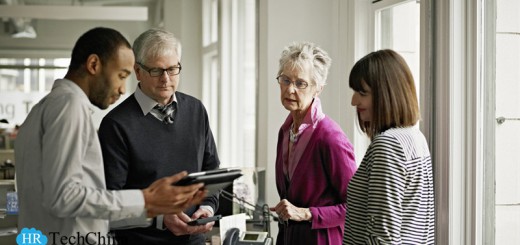 硅谷
硅谷
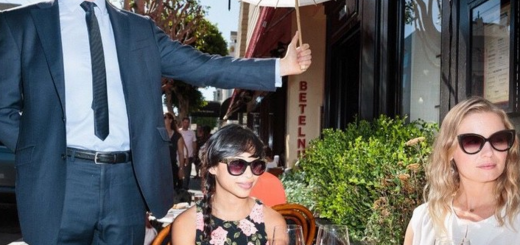 硅谷
硅谷
 硅谷
硅谷
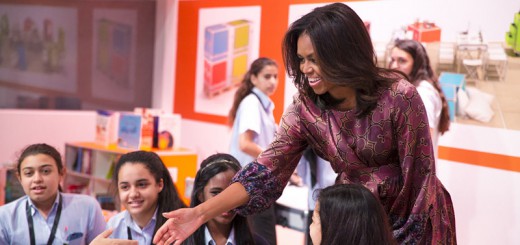 硅谷
硅谷
 硅谷
硅谷
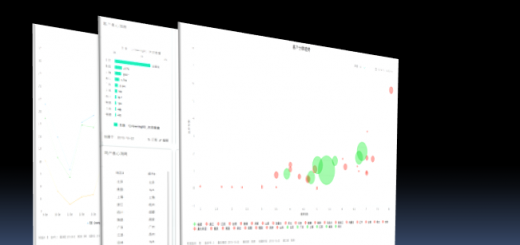 硅谷
硅谷
 硅谷
硅谷
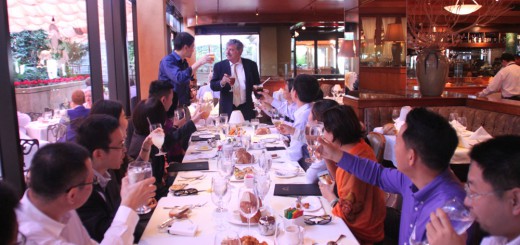 硅谷
硅谷
 硅谷
硅谷



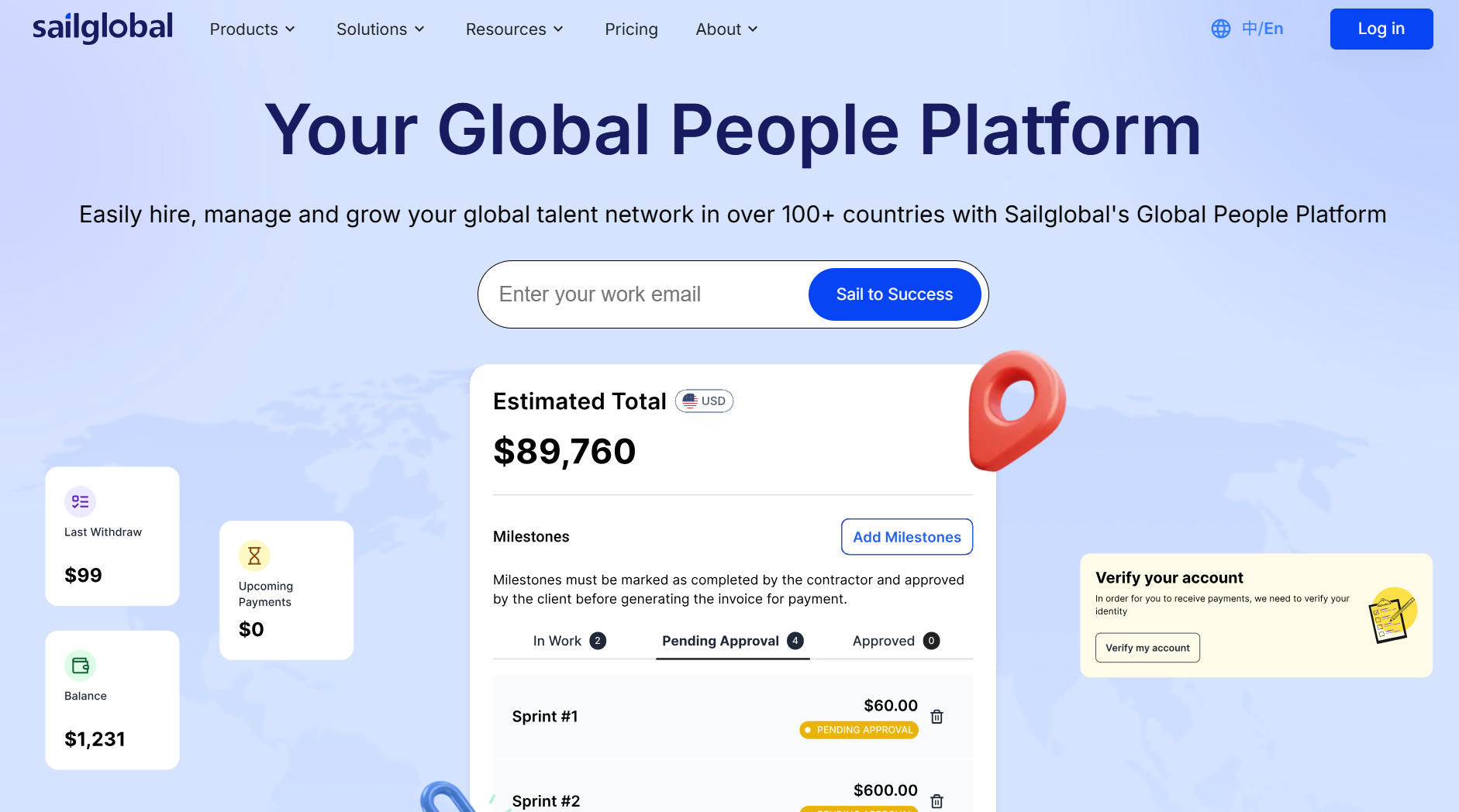
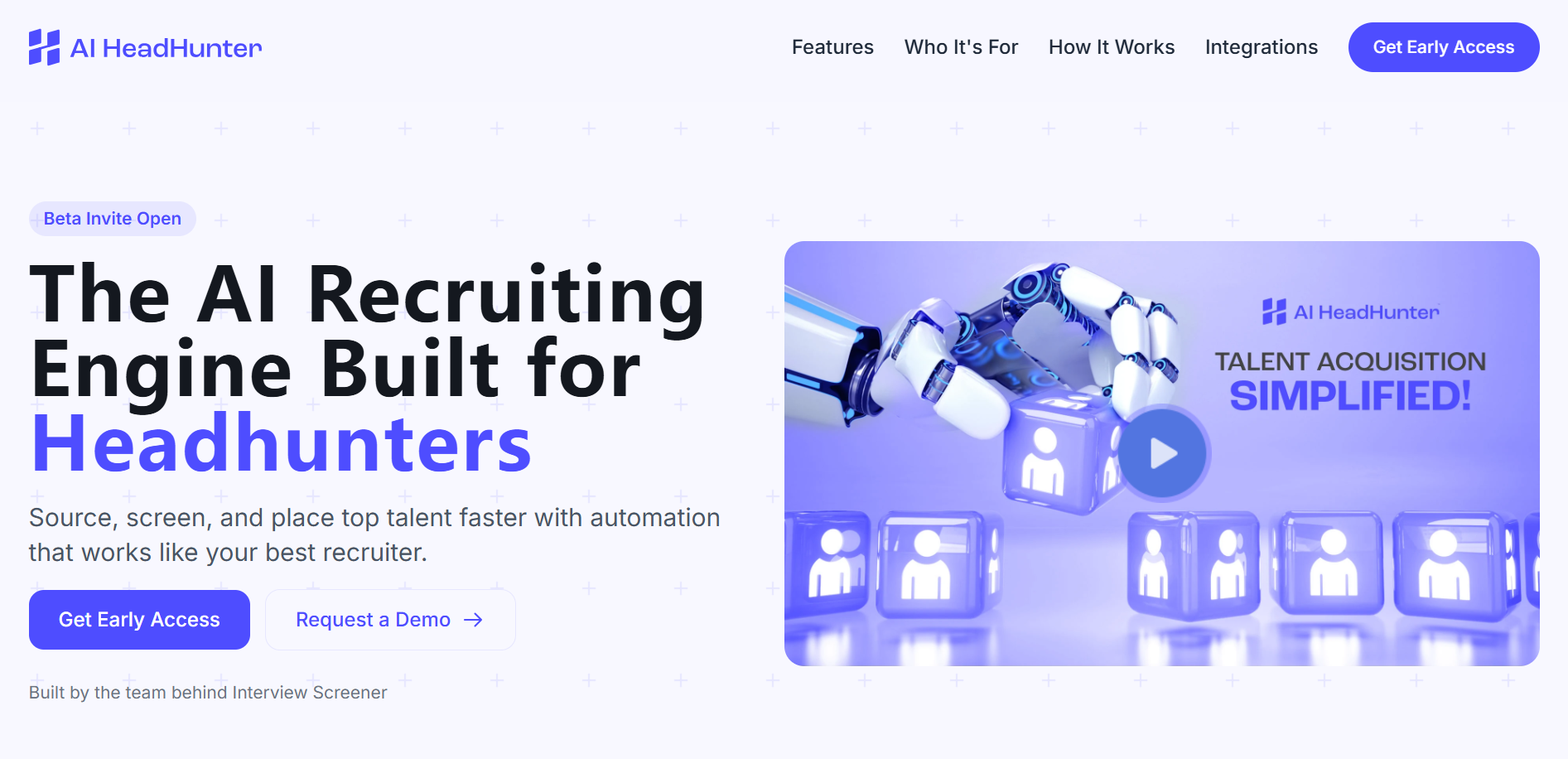
 扫一扫 加微信
hrtechchina
扫一扫 加微信
hrtechchina

